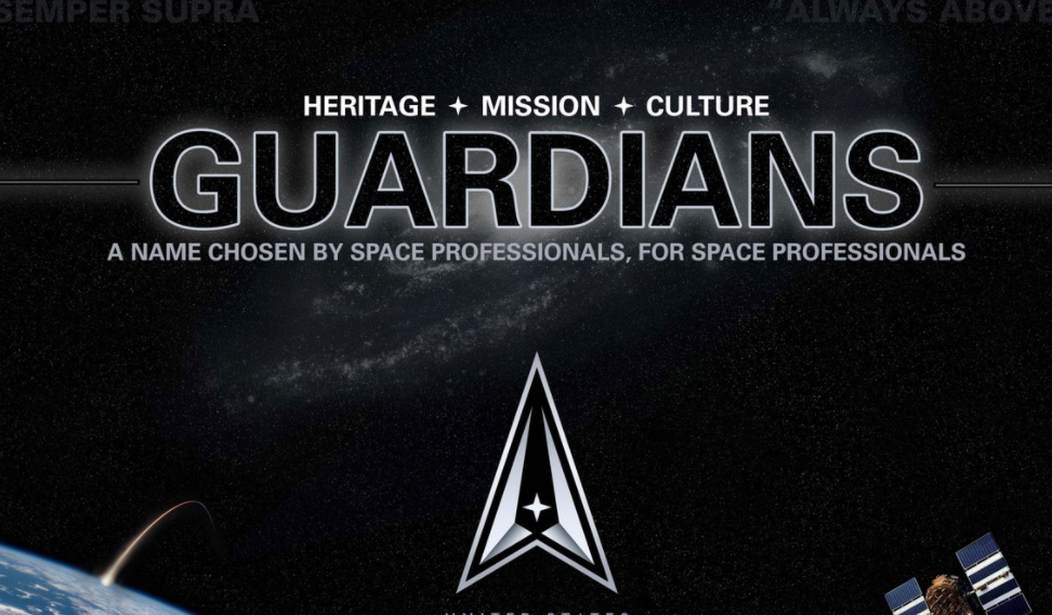Vice President Mike Pence announced yesterday that, henceforth, members of the U.S. Space Force would be known as “Guardians.”
“It is my honor, on behalf of the president of the United States, to announce that henceforth the men and women of the United States Space Force will be known as guardians,” Pence said at the White House. “Soldiers, sailors, airmen, Marines and guardians will be defending our nation for generations to come.”
Very nice, very sci-fi. But why “Guardians”?
“Guardians is a name with a long history in space operations, tracing back to the original command motto of Air Force Space Command in 1983, ‘Guardians of the High Frontier,'” the Space Force explained on Friday.
“The name Guardians connects our proud heritage and culture to the important mission we execute 24/7, protecting the people and interest of the U.S. and its allies.”
Interestingly, the name “Guardians” suggests protecting rather than fighting. It’s doubtful the Space Force will actually be engaged in combat in space. It’s not even clear if Space Force personnel will be sent into space, although that role is certainly on the table.
One clue is in the $15 billion budget. It might seem like that is a lot of money, but NASA’s total budget is only $22 billion, and they’re starting to put astronauts in space again. Given all the duties that the Space Force is tasked with performing, they’re not going to be putting a lot of Guardians into space on the cheap. For the time being, the Space Force will be an earth-bound command.
But if that changes, expect the Space Force to experience budget creep — the incremental increase in spending that afflicts government departments that find more and more things to do and, therefore, need more and more money to do them. A good example is the Federal Emergency Management Agency (FEMA). FEMA began in 1979 as a taxpayer assistance agency, helping disaster victims fill out paperwork for government loans and other programs. FEMA annual spending averaged $1 billion in the 1980s, $3 billion in the 1990s, and more than $10 billion recently. Their budget in FY 2020 is $18 billion.
Disasters have gotten more expensive, but it’s not just the budget that’s changed. FEMA’s entire mission has undergone a radical revision to where it has now made itself the go-to agency for everything disaster-related. Budget creep and mission creep.
We can hope something similar doesn’t happen to the Guardians.
Guardians of course are a regular theme in science fiction. I’m not just talking Guardians of the Galaxy but the Matrix too. The agents within the Matrix are guardians within the computer-generated world who can protect it from any threat that may reveal the true reality. And then at this time of year, perhaps we will associate guardianship as a term with guardian angels, those spiritual agents sent from God who have been assigned to protect a specific person – or in this case a specific planet. Either way, the question that has so far not been asked, and therefore not yet answered, is what are Space Force Guardians guarding us against?
Whilst guardians contain the notion that they are leaders or guides in care and protection and therefore in the law, is that law to be seen as US constitutional law, universal human rights law, or something higher still, a moral law? Only time, rather than space, will tell.
Large organizations develop their own rationale for existing so it’s likely that Space Force will create a space for itself, whether it’s based on the ground or in the sky.










Join the conversation as a VIP Member